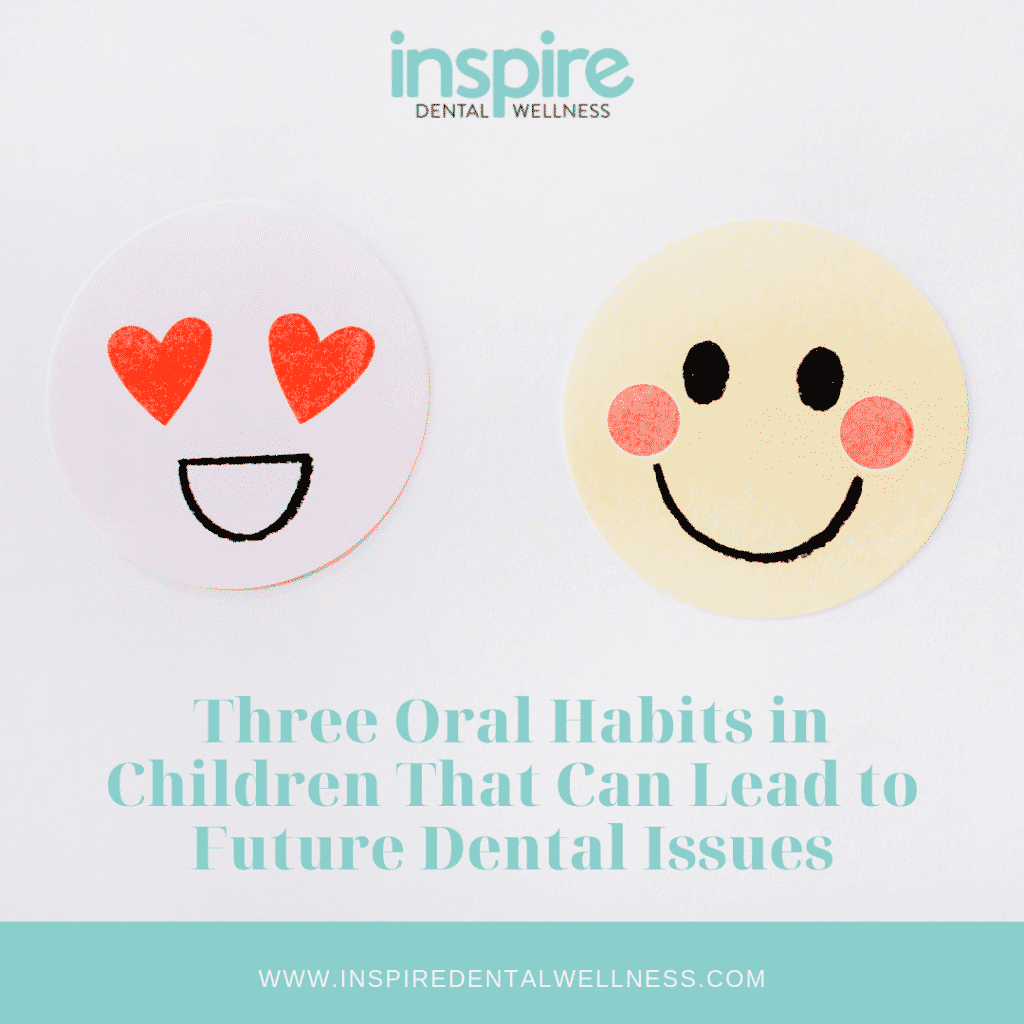
If you have kids, you know that a big part of your job is making sure they’re learning the skills and information they need to get ahead in life. This job never seems to end; you have to make sure they learn how to read, how to eat a healthy diet, and of course, how to treat other people with respect. Well, we hate to pile more on your shoulders, but there are a few things you should also be teaching your children about their oral health.
There are certain habits that start very young and while some of them may seem minor, we prefer to catch them early before they lead to future dental issues. We hope this post will be enlightening and will give you the information you need to address any habits you see forming in your own family! Hopefully, with this information, we can avoid extracting teeth later on or reduce your child’s chances of needing braces.
Three Oral Habits to Watch For at Home
#1 – Mouth Breathing
You might think mouth breathing is only problematic because it can cause dry mouth, and while that is a concern of ours, it can also lead to more serious problems. In children especially, mouth breathing can lead to poor sleep, lower oxygen levels in the blood, and even facial deformities.
Since their facial features are still developing, children who breathe through their mouth rather than their nose can end up having a face and jaw that is more narrow, a flatter nose with smaller nostrils, and thin lips. It’s a good idea to address mouth breathing early so it’s easier to reverse course and avoid these potential issues.
#2 – Thumb Sucking
This is a biggie. Sucking on fingers, thumbs, or even using a pacifier beyond the age of three may cause future permanent teeth to come in crooked. Aggressive thumbsucking may even cause issues with baby teeth, though this isn’t quite as common.
Children should be encouraged to stop using pacifiers after they turn three at the latest and thumb sucking should be addressed at this age as well. Getting children to stop can be difficult, but not impossible. Find another way your child can comfort themselves that is less problematic, like chewlry (jewelry you can chew) or you can put a band-aid on their thumb until they’re able to control their urge to suck.
#3 – Altered Lingual Frenum
If you notice your child’s tongue rests on the floor of the mouth rather than the roof, it may be due to an altered lingual frenum. If your child is a picky eater, you also may want to check for an altered lingual frenums. This condition makes it too difficult for many kids to push food other than soft pasta and chicken nuggets around in their mouths.
If untreated, an altered lingual frenum may cause the jaw to become more narrow, which can lead to a number of issues, such as crowding, speech problems, breathing issues (especially during sleep), etc. We can perform an infant frenectomy to correct the issue, or if the jaw has already formed, we can recommend a functional appliance to expand the width of the jaw. This will make more room for the tongue and enhance your child’s ability to speak normally.
If you want to discuss any of these oral habits and get advice about correcting them before they become a larger issue, we’d be happy to help! Give our Orland Park office a call at 708-460-6699 or click here to request an appointment. We can’t wait to hear from you!
